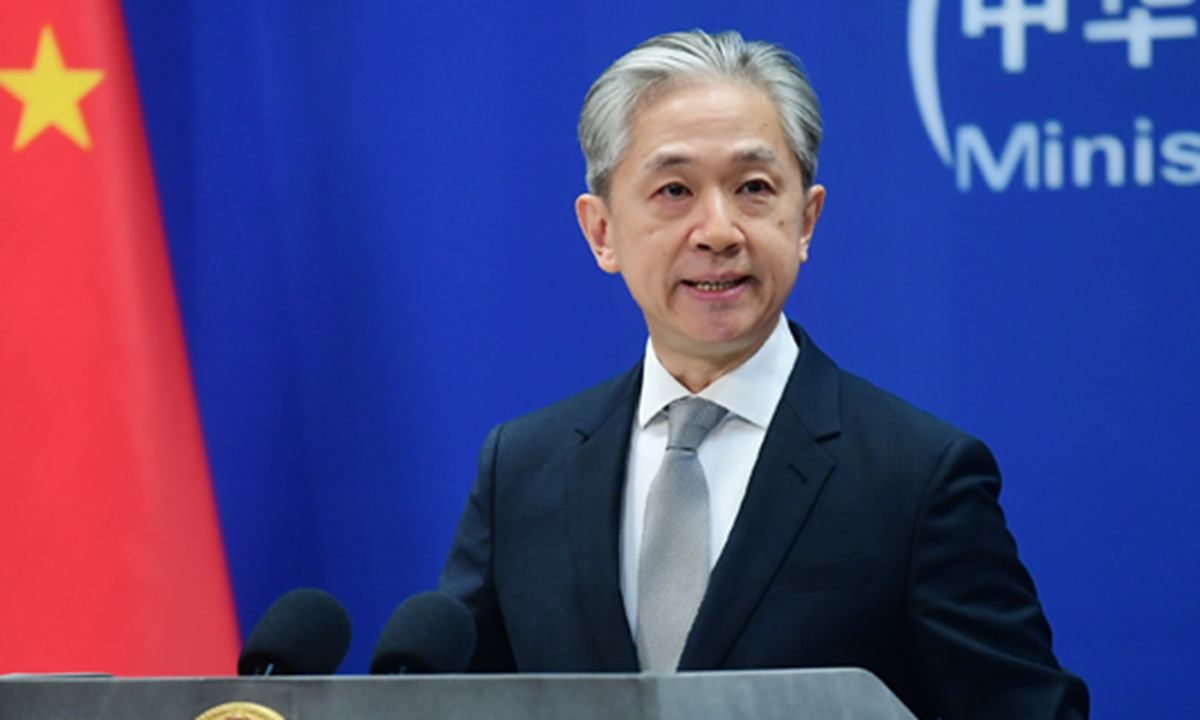China, Japan, S.Korea in contact over trilateral cooperation talks, but tensions persist

Chinese Foreign Ministry spokesperson Wang Wenbin Photo: mfa.gov.cn
China, Japan and South Korea are keeping in contact over high-level talks on trilateral cooperation, Chinese Foreign Ministry spokesperson Wang Wenbin disclosed at a routine press conference on Monday, ahead of scheduled three-way meetings this week and amid Seoul’s push to revive the long-stalled leaders’ meeting between the three countries.
Wang Wenbin made the remarks when commenting on queries concerning the working-level talks to be held in Seoul this week. The spokesperson noted on Monday that China, Japan and South Korea are close neighbors and important partners. Strengthening cooperation is in line with their common interests.
China attaches high importance to the trilateral cooperation and supports South Korea serving as the rotating chair of the trilateral cooperation, the spokesperson said.
According to the South Korean media, Nong Rong, China's assistant minister of foreign affairs, Takehiro Funakoshi, Japan's senior deputy foreign minister and South Korean Deputy Foreign Minister Chung Byung-won are set to hold the high-level meeting on Tuesday.
South Korean Prime Minister Han Duck-soo attended the opening ceremony of the 19th Asian Games in Hangzhou, East China’s Zhejiang Province on Saturday, which was viewed by Chinese analysts as a sign of Seoul’s desire to improve relations with Beijing, enhance mutual trust and ease tensions via sports diplomacy.
Historically, especially before the establishment of diplomatic relations between China and South Korea, sports diplomacy played a critical role. Events like the 1986 Asian Games and the 1988 Olympics in Seoul had a significant impact on breaking through the restraints of the Cold War and enhancing mutual understanding, thus paving the way for the establishment of diplomatic relations in 1992.
Citing South Korea’s Ministry of Foreign Affairs, the Yonhap News Agency reported on September 19 that at the upcoming high-level meeting in Seoul, delegates will discuss three-way cooperation, including setting up a leaders’ meeting between the three countries.
The three-way leaders’ meeting among the regional neighbors, first held in December 2008, was suspended after the eighth gathering in December 2019 following a dispute between South Korea and Japan over forced labor compensation rulings and the pandemic, Yonhap stated.
Chinese analysts said that the extreme pro-US path taken by the administration of President Yoon Suk-yeol has been marked by repeated wrongful wording over the Taiwan question, and has reduced China-South Korea relations to a low point. This also forms a barrier for revival of the summit, they said.
President Yoon had vowed earlier on September 12 to actively seek a trilateral leaders’ meeting with Japan and China, the South Korean media reported.
These moves by the Yoon government show its urgent intention to ease tensions in bilateral ties, especially after the US sent high ranking officials to carry out communications, Chinese observers noted.
However, it is too early to promise an actual meeting of the leaders in the near future, as there would need to be ministerial-level talks to set tangible timetables and topics for discussion, and that would not be an easy process, Dong Xiangrong, a senior fellow at the National Institute of International Strategy at the Chinese Academy of Social Sciences, told the Global Times on Monday.
South Korean Ambassador to Japan Yun Duk-min said in an interview with Time that “high-level” talks are underway for a three-nation leaders’ meeting with China poised to happen this year, and it wouldn’t affect ties with the US, while maintaining that there may be a “Camp David effect” that prompts China to reach out to its neighbors.
China has blasted the so-called historic US-Japan-South Korea summit at the US presidential retreat Camp David in August as a “deliberate attempt to sow discord” between the world's second-largest economy and two of its Asian neighbors. Chinese analysts also said it could be a step toward creating a US-led "mini NATO" in the region that could force other regional countries to take more assertive actions.
Disagreeing with Yun’s remarks, Dong Xiangrong argued that it is only wishful thinking on the South Korean side to think the closer Seoul gets to Washington, the more bargaining chips it would have in talks with Beijing, as China would in fact handle ties with South Korea mainly within the China-South Korea bilateral setting or within that of the China-Japan-South Korea trilateral cooperation.
Voicing a similar opinion, Wang Junsheng, a research fellow of East Asian studies at the Chinese Academy of Social Sciences in Beijing, told the Global Times on Monday that it is Yoon and his government that have the most urgent need to revive the leaders’ meeting as it could save them from low approval ratings at home.
The recent series of efforts made by South Korea indicate self-reflection and adjustments of its China policy, which result from the external impact from the US, and Seoul’s subjective and urgent need to repair ties with Beijing for the sake of its own interests, Dong noted.
Wang also warned that Yoon’s government must correct its “totally unacceptable” remarks over the Taiwan question and reflect on its diplomatic path of joining the US-led West to contain China, otherwise China would not agree on arrangements for a three-way meeting of leaders.

